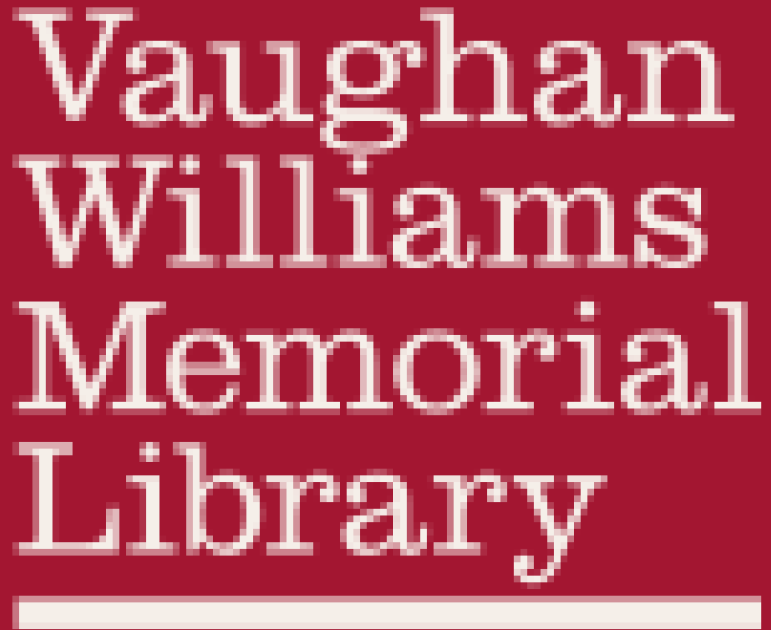Library Lectures 2020
Library Lectures in spring 2020 welcomed fantastic speakers who guided audiences through fascinating topics around folk song, dance and wider culture.
You can also read about lectures in other years and browse our Lectures Playlist on YouTube.
There’s method in the magic: the theory behind folk magic in medieval and early modern England by Tabitha Stanmore
Wednesday 22 January 2020, 7.30pm
Magic in pre-modern England took many forms, but among the most common was 'practical' magic: spells and rituals which brought about useful solutions to everyday problems. This talk explores what people commonly used magic for, and interrogate the spells themselves: why were certain words or items used? Were the rituals non-sensical, as has previously been claimed, or was there a method to folk magic which gone unrecognised? We identify some of the theory which informed magical practice, and track how these practices evolved over generations of magic use.
Tabitha Stanmore is currently completing her PhD in History at the Universities of Bristol and Exeter. Her thesis, Love Spells and Lost Spoons: Service magic in English society, 1350-1650 is supervised by Professor Ronald Hutton and Dr Catherine Rider. Tabitha has been featured on BBC Radio London, The Folklore Podcast, and History Chat: the history podcast discussing her findings on 'everyday' magic in English culture.
Barn Dances, Ceilidhs and Knees Ups: Social Folk Dance in England, 1945–2020 by Chloe Middleton-Metcalfe
Wednesday 12 February 2020, 7.30pm
What has folk dancing got to do with Butlins holiday camps? Or the British Royal Family? Why do people think that folk dancing should be fun? Why are all the dances walked? Why are callers reluctant to call themselves teachers? Why is English folk dance not taught in schools anymore? What has any of this got to do with Englishness and national identity? In this illustrated talk Chloe Middleton-Metcalfe selects the most interesting and challenging stories from her PhD. Valiantly battling against years of academic marginalisation she presented an array of fascinating stories about the most theoretically neglected English ‘folk’ dance form.
Chloe Elizabeth Middleton-Metcalfe is completing her PhD thesis on the subject of English social folk dance. This was completed at the University of Roehampton under Professor Theresa Buckland and Dr Sara Houston. She is an experienced lecturer for both non-specialist and academic audiences and has contributed to three published conferences proceedings on subjects including gender and social folk dance, morris dance costume, and English national dress. The Routledge Companion to English Folk Performance (forthcoming) includes a chapter about the dance theories of Douglas Kennedy, director of the EFDSS between 1924-1961. Chloe came to dance research through an interest in folk costume and runs the English Folk Costume Archive. This is currently accepting donations of performative dance costumes and related ephemera.
John Malchair’s ‘Third Collection of Tunes’ and other 18th century tune books at the Vaughan Williams Memorial Library by Alice Little
Wednesday 26 February 2020, 7.30pm
John Malchair (1730-1812) was a violinist and artist in Oxford, who spent his ‘leasure howers’ collecting music from Wales, Ireland, Scotland, and further afield. His tunebooks contain over 500 tunes, mostly country dance tunes and the melodies for songs, many of which are still played today. His sources for his collection included printed books, friends, and street musicians. His collection comprises four volumes of tunes, the third of which is at the VWML.
Alice Little is a violin player who went looking for repertoire to perform and ended up doing a doctorate. She completed her DPhil at the University of Oxford in 2018, for which she wrote about the collecting of music in eighteenth-century Britain and Ireland, and how ‘national music’ was understood at the time. Her particular focus was the music collection of John Malchair (1730-1812). She is now Research Associate at the Bate Collection of Musical Instruments, and a Junior Research Fellow at Corpus Christi College, Oxford. She holds a TORCH Humanities Knowledge Exchange Fellowship for 2019-20, for which she is partnered with EFDSS to work on the eighteenth-century tunebooks at the VWML.
Maud Karpeles, adventurer and folk song collector: a reconsideration of her 1929 and 1930 Newfoundland field explorations by Anna Guigné
Postponed to Wednesday 28 April 2021
In 1929, Londoner Maud Karpeles, a proponent of the early twentieth century British folk song and folk-dance revival movement, journeyed to the Dominion of Newfoundland to document British folk songs in England’s oldest colony. From 14 weeks of fieldwork, carried out between 1929 and 1930, Karpeles acquired close to 200 songs and dances, later publishing her findings in a series of articles and two major publications Folk songs from Newfoundland (1930, 1931, 1934 & 1970). Karpeles has always been a controversial figure for scholars because of her colonialist status and her sole focus on collecting songs of British origin. In this presentation Anna Guigné offers a new consideration of Karpeles as an adventurer with the stamina and determination to carry out her fieldwork in a most challenging environment. When her entire collection of British song material is taken into consideration, particularly the fifty-two songs she acquired from Newfoundland’s remote south coast, we can also discern how and why some of the British songs she so diligently acquired are now part of the Newfoundland song complex.
Anna Kearney Guigné is an independent folklorist and adjunct professor affiliated with the M.A. and Ph.D. Programs in Ethnomusicology at Memorial University of Newfoundland’s School of Music. She received her Ph.D., with distinction, from Memorial in 2004 and is a fellow of Memorial’s School of Graduate Studies. She writes extensively on twentieth-century folk song collectors and collecting practices and has a special interest in the politics of folk music revivals, Canadian and Newfoundland folk music history and folk song collections. She is the author of four books including her most recent publication The Songs that Nearly Got Away (2016), based on the unpublished portion of Kenneth Peacock’s Newfoundland song collection (1951-1961). She has recently produced a compact disc of archival recordings entitled Doughboys and Molasses Oh: Traditional Songs from the Gros Morne Region released by Memorial University’s Research Centre for Music Media and Place.


